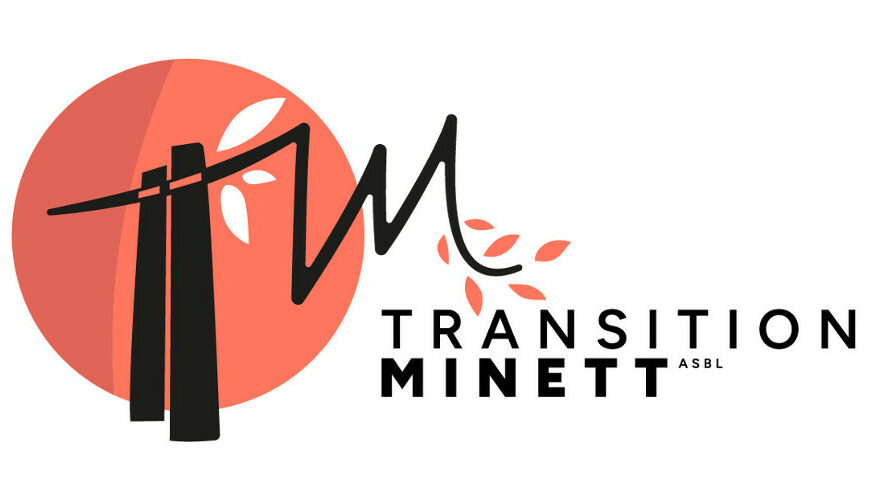Sébastien Kanarek, head of Facilitec’s participatory workshop, was one of the guest speakers at the round table on ‘Obsolescence and the circular economy: between environmental challenges and economic and social opportunities’, organised by the Circular Innovation Hub of the City of Wiltz and Infogreen on 15 October at Wiltz Castle. The event provided an opportunity to present concrete Transition Minett projects linked to the circular economy.
Planned Obsolescence: What is it?
First, let’s take a step back in time. The term ‘planned obsolescence’ has been around for almost 100 years. It first appeared in 1925 in Stuart Chase’s book The Tragedy of Waste, and then with Bernard London, an American developer who put words to the concept. In 1930, Lewis Mumford, a technology specialist, also criticised the phenomenon of planned obsolescence, which he saw as growing in parallel with the development of technology. A bit of history later, one question remains unanswered: from 1925 to the present day, how did we go from technological development to the hyperproduction of waste?
Where do we stand today?
There is still a great deal of work to be done, particularly to change consumer habits. Regulations are major levers for encouraging virtuous consumption. While the solution cannot be found overnight, the Transition Minett collaborative workshop at Facilitec, the circular economy centre, is one of several initiatives that are giving concrete expression to this growing awareness.
First of all, we need to look at planned obsolescence not as a single action, but rather as a series of different types of planned obsolescence, whether technical, software-related or aesthetic. With the criteria set out above, we can see that this practice has become, despite ourselves, a phenomenon in its own right. According to Catherine Phillips, Head of Legal Affairs at the Consumer Protection Directorate, who was also a guest at the round table, planned obsolescence is a factor in renewing the needs of consumers, who may therefore suffer from a lack of transparency.
Regulatory work, in particular with the ‘Right to Repair’ directive, which aims to encourage consumers to extend the life cycle of products through repair, provides a virtuous framework for the life of objects. In Luxembourg, we are seeing a delay in the introduction of regulations on planned obsolescence. On the other hand, legislation in France and Belgium seems to have already taken a step forward, in France with an explicit definition of the term ‘planned obsolescence’ in the Consumer Code. Belgium was the second country to adopt a reparability index for household appliances (the index is due to come into force in 2026)[1]. In short, we can see that Luxembourg has a considerable amount of catching up to do, penalising consumers at the same time.
So, while public authorities are increasingly encouraging us to change our consumption patterns, we can all act now, thanks to citizen initiatives.
What can i do? Nothing is lost, nothing is created, everything is transformed!
Today, 6,000 tonnes of electronic waste are produced every year! To reduce this figure, consumers need to adopt various alternatives. What if, instead of renewing an object and indirectly contributing to the phenomenon of planned obsolescence, we were to suggest ways of extending the life of objects?
Repairs and second-hand goods are concrete ways of promoting sensible consumption, to have an impact on the lifespan of products and therefore reduce waste. That’s what our participative workshop is all about, while adding a social approach, with exchanges between citizens and volunteers. This initiative also has an economic impact, by reducing personal purchases in favour of goods that could be used by a larger number of people. And last but not least, there’s the undeniable ecological impact of this initiative. We are helping to extend the useful life of objects and reduce waste production.
In practical terms, Transition Minett is proposing to look at ways of extending the life of objects that are little used on a daily basis, using the Gutt Geschier (the right tools) tool library, set up in collaboration with EBL. More generally, Facilitec is helping to promote the 5Rs (Refuse, Reduce, Reuse, Recycle, Rot), which are fundamental to acting responsibly in the face of ever-increasing waste production. Other inspiring eco-citizen initiatives, such as the Repair Café project, were highlighted during the round table by Léonard Andersen, coordinator of the Repair Café Luxembourg project and the Citizen for Ecological Learning & Living (CELL). We can also mention the various initiatives of the National Comity of Social Defense (CNDS), represented by its Director Raoul Schaaf during this exchange, which demonstrates the possibilities of linking ecology to social inclusion.
Read also: Repair Café – Learning to repair to extend the life of our objects
Interested in the collaborative workshop or need a tool? Come and discover or rediscover Facilitec at 37B rue de la Fontaine in Esch-sur-Alzette (access on rue Berwart). Opening times: Monday and Thursday: 2pm-8pm Tuesday and Wednesday: 1.30pm-5pm Friday: 9am-4.30pm Weekends closed, except for events and the last Sunday of the month (workshop open from 2pm to 5pm). |
And because we’re not the only ones working for the circular economy in Esch, we invite you to discover these projects if you don’t already know about them!
Centre Formida, FerroForum (a third-party metal workshop), CIGL Esch, SIVEC Schifflange, the Give Boxes: at the Kufa, the Mesa, and one for books at Place de l’Hôtel de Ville.
We would like to extend our warmest thanks to the Circular Innovation Hub of the municipality of Wiltz and the InfoGreen media for inviting us to this round table.
[1] Source: press release from Zakia Khattabi, Belgium’s Minister for Climate, the Environment, Sustainable Development and the Green Deal.

